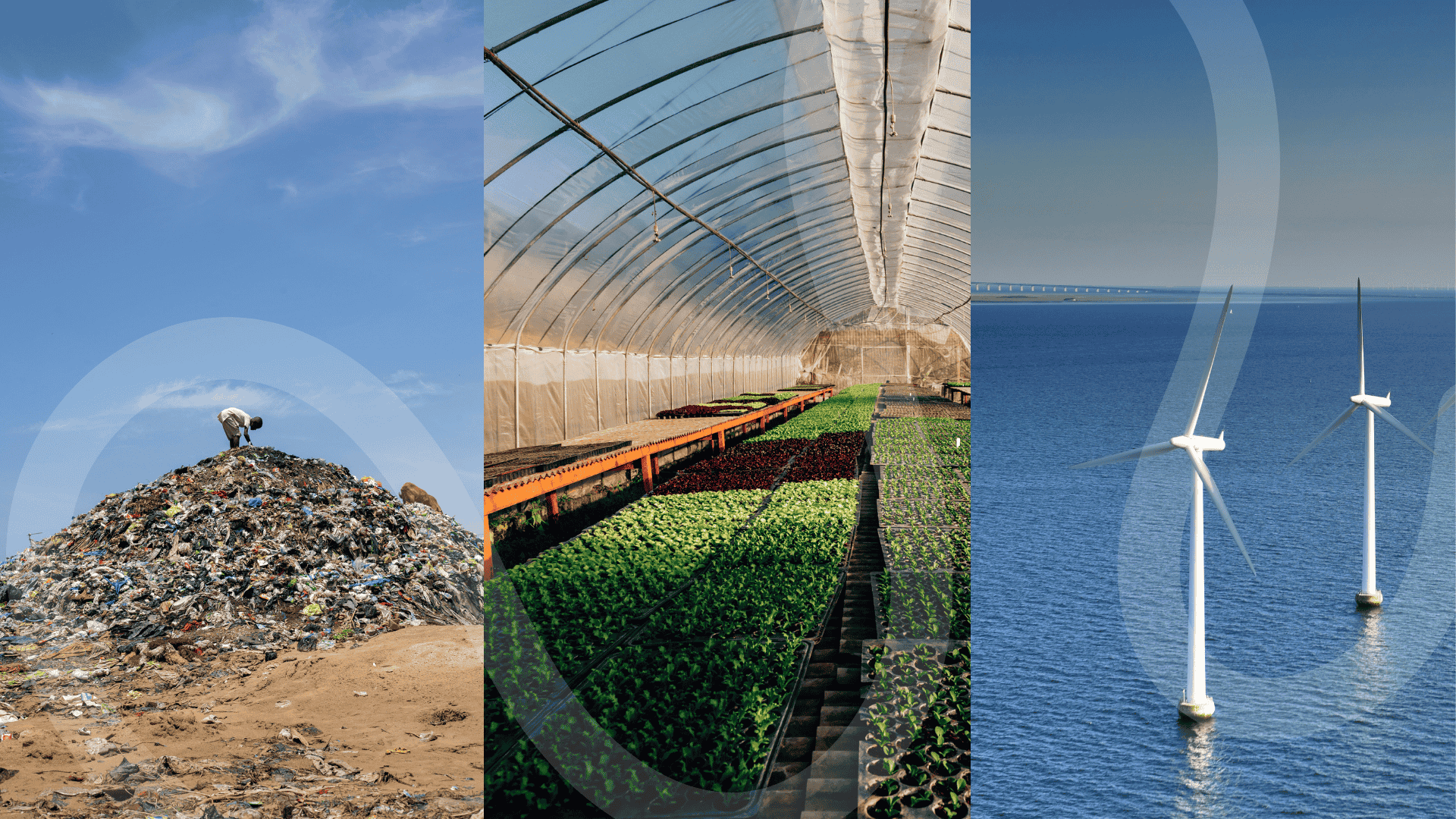Innovation
2024: A Pivotal Year for India’s Sustainability Revolution in Agriculture Technology, Plastic Waste & Clean Technology
A year-end update on innovations and trends in three key sustainability sectors in India.
Entrepreneurs are forging technology and empathy to pioneer innovations that can overhaul India’s healthcare system, revolutionising disease prevention and treatment outcomes.

Projections indicate that by 2030, approximately 69% of India’s population, totaling a monumental 1.04 billion individuals, will fall within the working-age bracket of 15 to 64 years. This unique demographic dividend holds the potential for significant developmental benefits across the country. However, India can only fully realise these benefits if it effectively nurtures and supports its young workforce.
Despite the unprecedented public health challenges brought forth by the pandemic, including issues of affordability and access, the Indian innovation ecosystem has demonstrated resilience by actively facilitating the proliferation of innovative healthcare products and services.
Interestingly, a substantial number of the gaps and challenges in contemporary Indian healthcare are being addressed by individuals without a background in healthcare. These individuals, often tech entrepreneurs, are enthusiastic about leveraging technology to transform the healthcare ecosystem. The increasing integration of technology is enhancing the efficiency and speed of healthcare services while expanding access to healthcare beyond socio-economic and geographical barriers.
Another notable aspect of healthcare innovations in India is a strong focus on the end user. Healthcare innovators prioritise user-centricity, aiming to address pertinent healthcare challenges by gaining a deep understanding of user contexts. For example, telemedicine and e-pharmacies, once relatively novel concepts, have gained significant traction in the market. This is largely due to the widespread adoption of mobile phones and the internet, which are rapidly becoming integral aspects of life even in rural and semi-urban India.
The advent of IoT has ushered in a new era of innovative healthcare solutions, particularly focusing on preventive care. IoT-based health management solutions allow for the real-time recording, sharing, and analysis of health data, facilitating highly personalised preventive health interventions.
Take for instance, respiratory and cardiovascular diseases, which rank among the leading causes of mortality in the country. Accurate auscultation (listening to chest sounds) is crucial for correct diagnosis of these diseases. Traditional stethoscopes used by medical professionals demand significant training and practice over time. Addressing this challenge, an innovative module developed at the Biomedical Engineering & Technology Incubation Centre (BETiC) at IIT Bombay transforms conventional stethoscopes into digital ones. This module offers features such as noise filtering, sound amplification, recording and playback, and visual representation of heart and lung sounds.
This transformative device stands poised to revolutionise healthcare delivery by ensuring accurate sound recording, which can then be transmitted to physicians for further diagnosis. Particularly in rural healthcare settings where specialist availability is limited, this device holds immense promise. Generalists can utilise these digital stethoscopes to record sounds and transmit them to specialists in nearby tier 1 cities, facilitating accurate diagnosis. This enables the healthcare sector to work with a sense of efficacy and immediacy, thus, strengthening the larger healthcare ecosystem.
AI stands as another emerging technology extensively utilised in leading healthcare institutions, research bodies, and hospitals for various purposes, including scan interpretation, risk prediction, and personalised care.
In India, breast cancer ranks as the most prevalent cancer among females, with an age-adjusted rate as high as 25.8 per 100,000 women and a mortality rate of 12.7 per 100,000 women. Currently, breast cancer detection relies on conventional methods such as self-testing or mammography, which entail exposure to harmful radiation and are often reported by women as painful and cost-prohibitive.
Despite its prevalence, breast cancer is deemed relatively simpler to treat compared to other cancers, with early detection playing a pivotal role in preventing progression to life-threatening stages. NIRAMAI addresses the challenge of early breast cancer detection with its innovative software-based medical devices. These devices are low-cost, accurate, automated, and portable, offering radiation-free, non-invasive, and painless screening suitable for women of all ages. Leveraging machine learning algorithms, NIRAMAI ensures reliable and accurate breast cancer detection, facilitating early diagnosis, regular preventive checkups, and large-scale screening in rural and semi-urban areas.
Chemotherapy remains a cornerstone of cancer treatment. Purple Ribbon, combining technology and empathy, operates India’s largest chemotherapy daycare network. Their services include remote monitoring devices, data analytics powered by proprietary technology, and a skilled team of onco-specialised nursing professionals providing critical palliative care. By democratising access to cancer treatment and bringing it to patients’ doorsteps, Purple Ribbon epitomises the potent fusion of compassionate healthcare and technology.
Technology possesses the potential to revolutionise public healthcare infrastructure, levelling the playing field and ensuring access and affordability for all, including the economically vulnerable and geographically remote populations.

A year-end update on innovations and trends in three key sustainability sectors in India.

In an interview with TheCSRUniverse, Suranjana Ghosh discusses MIF's objectives and progress on catalysing innovations in the plastic waste management space.

Three game-changing innovations from MIF’s Scale-Up Program mark India's climate tech revolution at Dubai's premier tech showcase.

Subscribe to InnoWin, our monthly newsletter, where we blend insight with inspiration & action with aspiration.
Join our mailing list